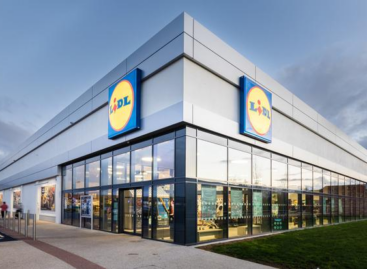Hungarian Black Friday is 10 years old – from bargain hunting to conscious shopping
Black Friday in Hungary has changed a lot in 10 years: while initially it was characterized by huge sales and impulse purchases, today more conscious, planned shopping takes place. Instead of huge discounts, we can come across extended sales periods. However, this gives us the opportunity to consider carefully and prepare for sales with price monitoring applications and lists. So Black Friday can still be a good time to buy essential products, such as Christmas gifts, at a discount, but the days of flash sales are over.
 November 28, 2014 is deeply etched in my memory. I was working as a sales director for a courier service and we were involved in the launch of a then new online retailer. During our first negotiations, we listened to the plans in disbelief, curious but skeptical about the goals set for Black Friday in Hungary. The expectations were dwarfed by the reality: the scale of the sales, the huge customer interest and the amazing traffic surprised everyone. Hundreds of thousands of packages in a single day, unprecedented discounts – Black Friday suddenly entered the calendar of Hungarian customers, retailers and logistics service providers. But will we be waiting so excitedly for the promotions to start on the last Friday morning of November 2024?
November 28, 2014 is deeply etched in my memory. I was working as a sales director for a courier service and we were involved in the launch of a then new online retailer. During our first negotiations, we listened to the plans in disbelief, curious but skeptical about the goals set for Black Friday in Hungary. The expectations were dwarfed by the reality: the scale of the sales, the huge customer interest and the amazing traffic surprised everyone. Hundreds of thousands of packages in a single day, unprecedented discounts – Black Friday suddenly entered the calendar of Hungarian customers, retailers and logistics service providers. But will we be waiting so excitedly for the promotions to start on the last Friday morning of November 2024?
Black Friday burst into Hungary 10 years ago
Black Friday was introduced in Hungary only 10 years ago, on November 28, 2014. The phenomenon quickly became popular, several retail chains and online stores enticed customers with significant discounts – but not one, but
typically more on two Fridays shared by the two largest traders.
For the first two or three years, Black Friday days were full of excitement and challenges.
As a buyer, it was worthwhile to prepare in advance: write lists, map the prices in advance, and pay attention to whether the sales start at midnight or at dawn. The real bargain hunting lay in the fact that customers had to make a quick decision, as the products offered at a really good price – be it high-value technical items, diapers or detergent – sold out in a flash, so an immediate decision was key.
In the first years, the volume of the sale period exceeded all imagination, the number of packages in online stores on sale days was many times the average turnover. For retailers, this period brought many lessons: the load capacity of online stores was tested by the shopping rush, and logistical problems and operational weaknesses were quickly revealed. Some sites crashed during heavy traffic, while in other cases the delivery of packages was delayed for weeks due to the lack of capacity of the courier services.
Related news
Crowds return to stores: margin cap and year-end preparations drive retail traffic
🎧 Hallgasd a cikket: Lejátszás Szünet Folytatás Leállítás Nyelv: Auto…
Read more >Related news
The Store of the Future opens again at the SIRHA Budapest exhibition! (Part 4)
🎧 Hallgasd a cikket: Lejátszás Szünet Folytatás Leállítás Nyelv: Auto…
Read more >








